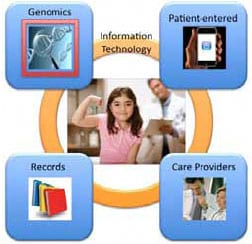Deputy Director
CalPERS Approves Partnership With CCST on pHIT
February 12, 2010 | CCST Newsroom | Contact: M. Daniel DeCillis
 In a meeting on December 15th, the CalPERS Health Benefits Committee approved moving forward with a pilot program proposed by the Personalized Healthcare Information Technology (pHIT) Task Force convened by CCST and the California Business, Transportation, and Housing Agency (BTH).
In a meeting on December 15th, the CalPERS Health Benefits Committee approved moving forward with a pilot program proposed by the Personalized Healthcare Information Technology (pHIT) Task Force convened by CCST and the California Business, Transportation, and Housing Agency (BTH).
The underlying purpose of the one year pilot study is to assist the state in recommending how the state’s Business Transportation and Housing Agency, the Health and Human Services Agency’s Health Information Exchange (HIE) workgroups, the Privacy and Security Advisory Board (PSAB), and the California Public Employees Retirement System should develop pHIT related policies, and to determine the potential value of pHIT as applied to personalized healthcare.
Specifically, the pHIT Pilot Study will seek to demonstrate how information technology may enable the integration of genomic information into an electronic health record system and how decisionmaking could be improved by individuals and their care providers by building a new knowledge-based model for decision support. The study will also seek to identify ways to improve quality of an individual’s healthcare, reduce the burdens of “disease care”, reduce costs overall, and grow California businesses. As a result of thorough research by pHIT Task Force leadership, breast cancer is recommended as the target disease focus for this pilot study, as there are at least two genetic/ genomic tests currently used by physicians as standard of care.
As part of the agreement with CalPERS, this work would include the retrieval of retrospective, de-identified data from the Health Care Decision Support System.
The pHIT Task Force (chaired by Dr. Ramesh Rao, California Institute for Telecommunications and Information Technology, UCSD) is charged to propose HIT infrastructure goals for the state in support of personalized health. It was first convened in March 2009.
In addition to CCST and BTH, pHIT Pilot Study partners include:
- Anthem/Well Point, Inc.
- CentriHealth
- Genomic Health
- Myriad Genetic Laboratories, Inc.
- CalPERS




